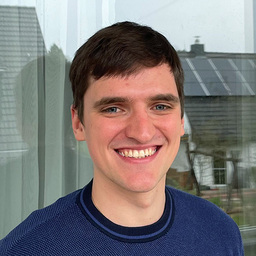What we are interested in
Deep Learning (DL) has proven to be a powerful tool to address complex problems across a wide range of fields. At iol.LEARN, we mainly focus on the intersection of sustainability and AI from two perspectives: a) enhancing the efficiency of DL methods, and b) employing DL techniques to tackle sustainability-related challenges and other public interest issues. For the former, addressing the challenges posed by the high computational, financial, and environmental costs of training and operating large models such as LLMs, we develop techniques to enhance the computational and memory efficiency through methods like pruning, quantization and decentralized training. For the latter, our group develops methods to tackle sustainability-related challenges, exemplified by our AI4Forest project, which involves learning high-resolution global tree height maps from satellite imagery to monitor deforestation and forest disturbances. We are further interested in taking advantage of DL for scientific discovery (AI4Science) and improving DL training towards robustness and interpretability through theoretically grounded techniques rooted in continuous and discrete optimization.
Researchers
Doctoral candidates

meise (at) zib.de

mundinger (at) zib.de

nelaturu (at) zib.de

pelleriti (at) zib.de

roux (at) zib.de

turan (at) zib.de

urbano (at) zib.de

wagner (at) zib.de
Undergraduate and Phase I Students

broemstrup (at) zib.de

freiling (at) zib.de

grunert (at) zib.de

jordan (at) zib.de

kuzinowicz (at) zib.de

mschoen (at) zib.de

tokpanova (at) zib.de
Former members
- Shpresim Sadiku (2020–2025)
- Suhrab Asadulla (2024–2025)
- Kartikeya Chitranshi (2023–2025)
- Mihail Birsan (2024–2025)
- Sushanth Malipati (2025)
- Christoph Graczyk (2020–2025)
- Felix Prause (2020–2025)
- Sai Ganesh Nagarajan (2023–2025)
- Kartikey Sharma (2020–2024)
- Megi Andoni (2023–2024)
- Muhammad Nawfal Meeran (2024)
- Surya Iyer (2022–2023)
- Adnan Mahmud (2023)
- Maria Bulychev (2021–2023)
- Giacomo Salvati (2021–2023)
- Elias Schecke (2021–2022)
- Stephan Wäldchen (2020–2022)
- Sergi Andreu (2020–2021)
- Minh Pham (2020–2021)
- Max-Georg Schorr (2020–2021)
- Margot Cosson (2021)
- Huy Do Anh
Visitors
- Manuella Nakam Yopdup (September 2025–)
- Takeshi Koshizuka (May–December 2025)
- Hiroshi Kera (October 2024–September 2025)
- Krunal Patel (February 2024)
💬 Talks and posters
Conference and workshop talks
- Jul 2025
- Neural Discovery in Mathematics by Christoph Spiegel
42nd International Conference on Machine Learning (ICML), Vancouver [PDF] - May 2025
- Algorithms and Complexity for Two-Team Polymatrix Zero-Sum Games: Revisiting Constrained Bilinear Minmax Optimization by Sai Ganesh Nagarajan
7th DOxML Conference, Kyoto - May 2025
- Neural Discovery in Mathematics by Christoph Spiegel
7th DOxML Conference, Kyoto [PDF] - Oct 2024
- Extending the Continuum of Six-Colorings by Christoph Spiegel
41st Kolloquium über Kombinatorik (KolKom), Heidelberg [PDF] - Jul 2024
- Extending the Continuum of Six-Colorings by Christoph Spiegel
13th Discrete Mathematics Days (DMD), Alcalá de Henares [PDF] - Dec 2019
- Tensor-based Algorithms for Image Classification by Patrick Gelß
Mathematics of Deep Learning
Research seminar talks
- May 2025
- Coloring the Plane with Neural Networks by Christoph Spiegel
Advanced Topics in Combinatorics II, Taipei [PDF] - Dec 2024
- Coloring the Plane with Neural Networks by Christoph Spiegel
Research Seminar Combinatorics, Berlin [PDF]
Poster presentations
- Dec 2025
- Computational Algebra with Attention: Transformer Oracles for Border Basis Algorithms by Nico Pelleriti
39th conference on neural information processing systems (NeurIPS), San Diego - Jul 2025
- Neural Concept Verifier: Scaling Prover-Verifier Games Via Concept Encodings by Berkant Turan
Actionable Interpretability Workshop at ICML 2025 (AIW), Vancouver - Jul 2025
- Approximating Latent Manifolds in Neural Networks Via Vanishing Ideals by Nico Pelleriti and Max Zimmer
42nd International Conference on Machine Learning (ICML), Vancouver - Jul 2025
- Neural Discovery in Mathematics: Do Machines Dream of Colored Planes? by Konrad Mundinger and Max Zimmer
42nd International Conference on Machine Learning (ICML), Vancouver - Jul 2025
- Capturing Temporal Dynamics in Large-Scale Canopy Tree Height Estimation by Berkant Turan and Max Zimmer
42nd International Conference on Machine Learning (ICML), Vancouver - Jul 2025
- DUNIA: Pixel-Sized Embeddings Via Cross-Modal Alignment for Earth Observation Applications by Max Zimmer
42nd International Conference on Machine Learning (ICML), Vancouver - May 2025
- The Good, the Bad and the Ugly: Watermarks, Transferable Attacks and Adversarial Defenses by Berkant Turan
7th DOxML Conference, Kyoto - May 2025
- S-CFE: Simple Counterfactual Explanations by Shpresim Sadiku
28th AISTATS Conference, Phuket - Apr 2025
- Compressed Sparse Tiles for Memory-Efficient Unstructured and Semi-Structured Sparsity by Max Zimmer
SLLM Workshop, Singapore - Apr 2025
- On the Byzantine-resilience of Distillation-based Federated Learning by Christophe Roux and Max Zimmer
13th International Conference on Learning Representations (ICLR), Singapore - Apr 2025
- Group-wise Sparse and Explainable Adversarial Attacks by Shpresim Sadiku
13th International Conference on Learning Representations (ICLR), Singapore - Apr 2025
- The Good, the Bad and the Ugly: Watermarks, Transferable Attacks and Adversarial Defenses by Berkant Turan
ICLR 2025: Workshop on GenAI Watermarking @ ICLR 2025 (ICLR), Singapore - Jul 2024
- Estimating Canopy Height at Scale by Max Zimmer
41st International Conference on Machine Learning (ICML), Vienna - Jul 2024
- Unified Taxonomy in AI Safety: Watermarks, Adversarial Defenses, and Transferable Attacks by Berkant Turan
TF2M Workshop, Vienna - May 2024
- Sparse Model Soups a Recipe for Improved Pruning Via Model Averaging by Max Zimmer
12th International Conference on Learning Representations (ICLR), Vienna - May 2024
- Interpretability Guarantees with Merlin-Arthur Classifiers by Berkant Turan
27th AISTATS Conference, València - May 2024
- Neural Parameter Regression for Explicit Representations of PDE Solution Operators by Konrad Mundinger
ICLR 2024: AI4DifferentialEquations in Science (ICLR), Vienna - Mar 2024
- Group-wise Sparse and Explainable Adversarial Attacks by Shpresim Sadiku
Deep Learning: Theory, Applications, and Implications, RIKEN Center for Advanced Intelligence Project, Tokyo - Jul 2023
- Extending Merlin-Arthur Classifiers for Improved Interpretability by Berkant Turan
The 1st World Conference on eXplainable Artificial Intelligence - May 2023
- How I Learned to Stop Worrying and Love Retraining by Max Zimmer
11th International Conference on Learning Representations (ICLR), Kigali - Mar 2023
- How I Learned to Stop Worrying and Love Retraining by Max Zimmer
Workshop on Optimization and Machine Learning, Waischenfeld - Dec 2021
- Learning to Schedule Heuristics in Branch-and-Bound by Antonia Chmiela
35th conference on neural information processing systems (NeurIPS)
📝 Publications and preprints
Preprints
- Halbey, J., Deza, D., Zimmer, M., Roux, C., Stellato, B., and Pokutta, S. (2026). Lower Bounds for Frank-Wolfe on Strongly Convex Sets.
[arXiv]
[BibTeX]
@misc{2026_JannishalbeyEtAl_Lowerboundsfrankwolfe_2602-04378, archiveprefix = {arXiv}, eprint = {2602.04378}, arxiv = {arXiv:2602.04378}, primaryclass = {math.OC}, year = {2026}, author = {Halbey, Jannis and Deza, Daniel and Zimmer, Max and Roux, Christophe and Stellato, Bartolomeo and Pokutta, Sebastian}, title = {Lower Bounds for Frank-Wolfe on Strongly Convex Sets}, date = {2026-02-04} } - Schiekiera, L., Zimmer, M., Roux, C., Pokutta, S., and Günther, F. (2026). From Associations to Activations: Comparing Behavioral and Hidden-State Semantic Geometry in LLMs.
[arXiv]
[BibTeX]
@misc{2026_LouisEtAl_Behavioralgeometry_2602-00628, archiveprefix = {arXiv}, eprint = {2602.00628}, arxiv = {arXiv:2602.00628}, primaryclass = {cs.LG}, year = {2026}, author = {Schiekiera, Louis and Zimmer, Max and Roux, Christophe and Pokutta, Sebastian and Günther, Fritz}, title = {From Associations to Activations: Comparing Behavioral and Hidden-State Semantic Geometry in LLMs}, date = {2026-01-31} } - Geiselmann, Z., Joswig, M., Kastner, L., Mundinger, K., Pokutta, S., Spiegel, C., Wack, M., and Zimmer, M. (2026). 121 Patchworked Curves of Degree Seven.
[arXiv]
[BibTeX]
@misc{2026_ZoeEtAl_Patchworkedcurves_2602-06888, archiveprefix = {arXiv}, eprint = {2602.06888}, arxiv = {arXiv:2602.06888}, primaryclass = {math.AG}, year = {2026}, author = {Geiselmann, Zoe and Joswig, Michael and Kastner, Lars and Mundinger, Konrad and Pokutta, Sebastian and Spiegel, Christoph and Wack, Marcel and Zimmer, Max}, title = {121 Patchworked Curves of Degree Seven}, date = {2026-02-06} } - Yoda, K., Kawamoto, K., and Kera, H. (2025). Learning Moderately Input-Sensitive Functions: A Case Study in QR Code Decoding.
[arXiv]
[BibTeX]
@misc{2025_KazukiKazuhikoKera_Qrcodedecoding_2506-20305, archiveprefix = {arXiv}, eprint = {2506.20305}, arxiv = {arXiv:2506.20305}, primaryclass = {cs.LG}, year = {2025}, author = {Yoda, Kazuki and Kawamoto, Kazuhiko and Kera, Hiroshi}, title = {Learning Moderately Input-Sensitive Functions: A Case Study in QR Code Decoding}, date = {2025-06-25} } - Kera, H., and Kehrein, A. (2025). Gradient-Weighted, Data-Driven Normalization for Approximate Border Bases – Concept and Computation.
[arXiv]
[BibTeX]
@misc{2025_KeraAchim_Gradientweightednormalization_2506-09529, archiveprefix = {arXiv}, eprint = {2506.09529}, arxiv = {arXiv:2506.09529}, primaryclass = {cs.SC}, year = {2025}, author = {Kera, Hiroshi and Kehrein, Achim}, title = {Gradient-Weighted, Data-Driven Normalization for Approximate Border Bases -- Concept and Computation}, date = {2025-06-11} } - Kera, H., Arakawa, S., and Sato, Y. (2025). CALT: A Library for Computer Algebra with Transformer.
[arXiv]
[BibTeX]
@misc{2025_KeraShunYuta_Calttransformer_2506-08600, archiveprefix = {arXiv}, eprint = {2506.08600}, arxiv = {arXiv:2506.08600}, primaryclass = {cs.LG}, year = {2025}, author = {Kera, Hiroshi and Arakawa, Shun and Sato, Yuta}, title = {CALT: A Library for Computer Algebra with Transformer}, date = {2025-06-10} } - Koshizuka, T., and Sato, I. (2025). Understanding Generalization in Physics Informed Models Through Affine Variety Dimensions.
[arXiv]
[BibTeX]
@misc{2025_KoshizukaIssei_Generalizationaffinevariety_2501-18879, archiveprefix = {arXiv}, eprint = {2501.18879}, arxiv = {arXiv:2501.18879}, primaryclass = {cs.LG}, year = {2025}, author = {Koshizuka, Takeshi and Sato, Issei}, title = {Understanding Generalization in Physics Informed Models Through Affine Variety Dimensions}, date = {2025-01-31} } - Roux, C., Zimmer, M., d’Aspremont, A., and Pokutta, S. (2025). Don’t Be Greedy, Just Relax! Pruning LLMs Via Frank-Wolfe.
[arXiv]
[BibTeX]
@misc{2025_RouxZimmerDaspremontPokutta_Pruningfrankwolfe_2510-13713, archiveprefix = {arXiv}, eprint = {2510.13713}, arxiv = {arXiv:2510.13713}, primaryclass = {cs.LG}, year = {2025}, author = {Roux, Christophe and Zimmer, Max and d'Aspremont, Alexandre and Pokutta, Sebastian}, title = {Don't Be Greedy, Just Relax! Pruning LLMs Via Frank-Wolfe}, date = {2025-10-15} } - Sadiku, S., Chitranshi, K., Kera, H., and Pokutta, S. (2025). Training on Plausible Counterfactuals Removes Spurious Correlations.
[arXiv]
[BibTeX]
@misc{2025_SadikuChitranshiKeraPokutta_Plausiblecounterfactuals, archiveprefix = {arXiv}, eprint = {2505.16583}, arxiv = {arXiv:2505.16583}, primaryclass = {cs.LG}, year = {2025}, author = {Sadiku, Shpresim and Chitranshi, Kartikeya and Kera, Hiroshi and Pokutta, Sebastian}, title = {Training on Plausible Counterfactuals Removes Spurious Correlations}, date = {2025-05-22} } - Kumano, S., Kera, H., and Yamasaki, T. (2025). Adversarially Pretrained Transformers May Be Universally Robust In-Context Learners.
[arXiv]
[BibTeX]
@misc{2025_SoichiroKeraToshihiko_Adversarialtransformers, archiveprefix = {arXiv}, eprint = {2505.14042}, arxiv = {arXiv:2505.14042}, primaryclass = {cs.LG}, year = {2025}, author = {Kumano, Soichiro and Kera, Hiroshi and Yamasaki, Toshihiko}, title = {Adversarially Pretrained Transformers May Be Universally Robust In-Context Learners}, date = {2025-05-20} } - Wagner, M., Roux, C., Zimmer, M., and Pokutta, S. (2025). A Free Lunch in LLM Compression: Revisiting Retraining After Pruning.
[arXiv]
[BibTeX]
@misc{2025_WagnerRouxZimmerPokutta_Llmpruningretraining_2510-14444, archiveprefix = {arXiv}, eprint = {2510.14444}, arxiv = {arXiv:2510.14444}, primaryclass = {cs.LG}, year = {2025}, author = {Wagner, Moritz and Roux, Christophe and Zimmer, Max and Pokutta, Sebastian}, title = {A Free Lunch in LLM Compression: Revisiting Retraining After Pruning}, date = {2025-10-16} } - Sato, Y., Kawamoto, K., and Kera, H. (2025). Chain of Thought in Order: Discovering Learning-Friendly Orders for Arithmetic.
[arXiv]
[BibTeX]
@misc{2025_YutaKazuhikoKera_Chainthoughtordering_2506-23875, archiveprefix = {arXiv}, eprint = {2506.23875}, arxiv = {arXiv:2506.23875}, primaryclass = {cs.LG}, year = {2025}, author = {Sato, Yuta and Kawamoto, Kazuhiko and Kera, Hiroshi}, title = {Chain of Thought in Order: Discovering Learning-Friendly Orders for Arithmetic}, date = {2025-06-30} } - Zimmer, M., Roux, C., Wagner, M., Hendrych, D., and Pokutta, S. (2025). SparseSwaps: Tractable LLM Pruning Mask Refinement at Scale.
[arXiv]
[BibTeX]
@misc{2025_ZimmerEtAl_Sparseswapspruning_2512-10922, archiveprefix = {arXiv}, eprint = {2512.10922}, arxiv = {arXiv:2512.10922}, primaryclass = {cs.LG}, year = {2025}, author = {Zimmer, Max and Roux, Christophe and Wagner, Moritz and Hendrych, Deborah and Pokutta, Sebastian}, title = {SparseSwaps: Tractable LLM Pruning Mask Refinement at Scale}, date = {2025-12-11} } - Goerigk, M., Hartisch, M., Merten, S., and Sharma, K. (2024). Feature-Based Interpretable Surrogates for Optimization.
[arXiv]
[BibTeX]
@misc{2024_GoerigkHartischMertenSharma_Featureinterpretableoptimization, archiveprefix = {arXiv}, eprint = {2409.01869}, arxiv = {arXiv:2409.01869}, primaryclass = {math.OC}, year = {2024}, author = {Goerigk, Marc and Hartisch, Michael and Merten, Sebastian and Sharma, Kartikey}, title = {Feature-Based Interpretable Surrogates for Optimization}, date = {2024-09-03} } - Zimmer, M., Andoni, M., Spiegel, C., and Pokutta, S. (2023). PERP: Rethinking the Prune-Retrain Paradigm in the Era of LLMs.
[arXiv]
[code]
[BibTeX]
@misc{2023_ZimmerAndoniSpiegelPokutta_PerpPruneRetrain, archiveprefix = {arXiv}, eprint = {2312.15230}, arxiv = {arXiv:2312.15230}, primaryclass = {cs.LG}, year = {2023}, author = {Zimmer, Max and Andoni, Megi and Spiegel, Christoph and Pokutta, Sebastian}, title = {PERP: Rethinking the Prune-Retrain Paradigm in the Era of LLMs}, code = {https://github.com/ZIB-IOL/PERP}, date = {2023-12-23} } - Combettes, C., Spiegel, C., and Pokutta, S. (2020). Projection-Free Adaptive Gradients for Large-Scale Optimization.
[arXiv]
[summary]
[code]
[BibTeX]
@misc{2020_CombettesSpiegelPokutta_Projectionfreeadaptivegradients, archiveprefix = {arXiv}, eprint = {2009.14114}, arxiv = {arXiv:2009.14114}, primaryclass = {math.OC}, year = {2020}, author = {Combettes, Cyrille and Spiegel, Christoph and Pokutta, Sebastian}, title = {Projection-Free Adaptive Gradients for Large-Scale Optimization}, code = {https://github.com/ZIB-IOL/StochasticFrankWolfe}, summary = {https://pokutta.com/blog/research/2020/10/21/adasfw.html}, date = {2020-09-29} } - Pokutta, S., Spiegel, C., and Zimmer, M. (2020). Deep Neural Network Training with Frank-Wolfe.
[arXiv]
[summary]
[code]
[BibTeX]
@misc{2020_PokuttaSpiegelZimmer_Frankwolfeneuralnetworks, archiveprefix = {arXiv}, eprint = {2010.07243}, arxiv = {arXiv:2010.07243}, primaryclass = {cs.LG}, year = {2020}, author = {Pokutta, Sebastian and Spiegel, Christoph and Zimmer, Max}, title = {Deep Neural Network Training with Frank-Wolfe}, code = {https://github.com/ZIB-IOL/StochasticFrankWolfe}, summary = {https://pokutta.com/blog/research/2020/11/11/NNFW.html}, date = {2020-10-14} }
Conference proceedings
- Pelleriti, N., Spiegel, C., Liu, S., Martínez-Rubio, D., Zimmer, M., and Pokutta, S. (2026, January). Neural Sum-of-Squares: Certifying the Nonnegativity of Polynomials with Transformers. Proceedings of the International Conference on Learning Representations.
[arXiv]
[BibTeX]
@inproceedings{2025_PelleritiEtAl_Neuralsos_2510-13444, year = {2026}, booktitle = {Proceedings of the International Conference on Learning Representations}, month = jan, archiveprefix = {arXiv}, eprint = {2510.13444}, arxiv = {arXiv:2510.13444}, primaryclass = {cs.LG}, author = {Pelleriti, Nico and Spiegel, Christoph and Liu, Shiwei and Martínez-Rubio, David and Zimmer, Max and Pokutta, Sebastian}, title = {Neural Sum-of-Squares: Certifying the Nonnegativity of Polynomials with Transformers} } - Urbano, A., Romero, D. W., Zimmer, M., and Pokutta, S. (2026, January). RECON: Robust Symmetry Discovery Via Explicit Canonical Orientation Normalization. Proceedings of the International Conference on Learning Representations.
[arXiv]
[BibTeX]
@inproceedings{2025_UrbanoWZimmerPokutta_Reconsymmetrydiscovery, year = {2026}, booktitle = {Proceedings of the International Conference on Learning Representations}, month = jan, archiveprefix = {arXiv}, eprint = {2505.13289}, arxiv = {arXiv:2505.13289}, primaryclass = {cs.LG}, author = {Urbano, Alonso and Romero, David W. and Zimmer, Max and Pokutta, Sebastian}, title = {RECON: Robust Symmetry Discovery Via Explicit Canonical Orientation Normalization} } - Głuch, G., Turan, B., Nagarajan, S. G., and Pokutta, S. (2025). The Good, the Bad and the Ugly: Meta-Analysis of Watermarks, Transferable Attacks and Adversarial Defenses. Proceedings of the Conference on Neural Information Processing Systems, 38.
[arXiv]
[BibTeX]
@inproceedings{2024_GrzegorzTuranNagarajanPokutta_Watermarksadversarialdefenses:2, year = {2025}, booktitle = {Proceedings of the Conference on Neural Information Processing Systems}, month = sep, volume = {38}, archiveprefix = {arXiv}, eprint = {2410.08864}, arxiv = {arXiv:2410.08864}, primaryclass = {cs.LG}, author = {Głuch, Grzegorz and Turan, Berkant and Nagarajan, Sai Ganesh and Pokutta, Sebastian}, title = {The Good, the Bad and the Ugly: Meta-Analysis of Watermarks, Transferable Attacks and Adversarial Defenses} } - Kera, H., Pelleriti, N., Ishihara, Y., Zimmer, M., and Pokutta, S. (2025). Computational Algebra with Attention: Transformer Oracles for Border Basis Algorithms. Proceedings of the Conference on Neural Information Processing Systems, 38.
[arXiv]
[BibTeX]
@inproceedings{2025_KeraEtAl_Transformeroracles_2505-23696, year = {2025}, booktitle = {Proceedings of the Conference on Neural Information Processing Systems}, month = sep, volume = {38}, archiveprefix = {arXiv}, eprint = {2505.23696}, arxiv = {arXiv:2505.23696}, primaryclass = {cs.LG}, author = {Kera, Hiroshi and Pelleriti, Nico and Ishihara, Yuki and Zimmer, Max and Pokutta, Sebastian}, title = {Computational Algebra with Attention: Transformer Oracles for Border Basis Algorithms}, date = {2025-05-29} } - Turan, B., Asadulla, S., Steinmann, D., Stammer, W., and Pokutta, S. (2025, July 10). Neural Concept Verifier: Scaling Prover-Verifier Games Via Concept Encodings. Proceedings of the Actionable Interpretability Workshop at ICML 2025.
[arXiv]
[BibTeX]
@inproceedings{2025_TuranEtAl_Neuralconceptverifier_2507-07532, year = {2025}, booktitle = {Proceedings of the Actionable Interpretability Workshop at ICML 2025}, month = jul, archiveprefix = {arXiv}, eprint = {2507.07532}, arxiv = {arXiv:2507.07532}, primaryclass = {cs.LG}, author = {Turan, Berkant and Asadulla, Suhrab and Steinmann, David and Stammer, Wolfgang and Pokutta, Sebastian}, title = {Neural Concept Verifier: Scaling Prover-Verifier Games Via Concept Encodings}, date = {2025-07-10} } - Pauls, J., Zimmer, M., Turan, B., Saatchi, S., Ciais, P., Pokutta, S., and Gieseke, F. (2025). Capturing Temporal Dynamics in Large-Scale Canopy Tree Height Estimation. Proceedings of the International Conference on Machine Learning, 267.
[arXiv]
[BibTeX]
@inproceedings{2025_JanEtAl_Temporalcanopyheight, year = {2025}, booktitle = {Proceedings of the International Conference on Machine Learning}, month = may, volume = {267}, archiveprefix = {arXiv}, eprint = {2501.19328}, arxiv = {arXiv:2501.19328}, primaryclass = {cs.LG}, author = {Pauls, Jan and Zimmer, Max and Turan, Berkant and Saatchi, Sassan and Ciais, Philippe and Pokutta, Sebastian and Gieseke, Fabian}, title = {Capturing Temporal Dynamics in Large-Scale Canopy Tree Height Estimation}, date = {2025-01-31} } - Mundinger, K., Zimmer, M., Kiem, A., Spiegel, C., and Pokutta, S. (2025). Neural Discovery in Mathematics: Do Machines Dream of Colored Planes? Proceedings of the International Conference on Machine Learning, 267.
[arXiv]
[BibTeX]
@inproceedings{2025_MundingerZimmerKiemSpiegelPokutta_NeuralDiscovery, year = {2025}, booktitle = {Proceedings of the International Conference on Machine Learning}, month = may, volume = {267}, archiveprefix = {arXiv}, eprint = {2501.18527}, arxiv = {arXiv:2501.18527}, primaryclass = {cs.LG}, author = {Mundinger, Konrad and Zimmer, Max and Kiem, Aldo and Spiegel, Christoph and Pokutta, Sebastian}, title = {Neural Discovery in Mathematics: Do Machines Dream of Colored Planes?}, date = {2025-01-30} } - Pelleriti, N., Zimmer, M., Wirth, E., and Pokutta, S. (2025). Approximating Latent Manifolds in Neural Networks Via Vanishing Ideals. Proceedings of the International Conference on Machine Learning, 267.
[arXiv]
[BibTeX]
@inproceedings{2025_PelleritiZimmerWirthPokutta_Latentmanifolds, year = {2025}, booktitle = {Proceedings of the International Conference on Machine Learning}, month = may, volume = {267}, archiveprefix = {arXiv}, eprint = {2502.15051}, arxiv = {arXiv:2502.15051}, primaryclass = {cs.LG}, author = {Pelleriti, Nico and Zimmer, Max and Wirth, Elias and Pokutta, Sebastian}, title = {Approximating Latent Manifolds in Neural Networks Via Vanishing Ideals}, date = {2025-02-20} } - Zimmer, M., Spiegel, C., and Pokutta, S. (2025). Compression-aware Training of Neural Networks Using Frank-Wolfe. Proceedings of the Conference on Neural Information Processing Systems, 137–168.
DOI: 10.1515/9783111376776-010
[arXiv]
[BibTeX]
@inproceedings{2022_ZimmerSpiegelPokutta_Compressionawaretraining:1, year = {2025}, booktitle = {Proceedings of the Conference on Neural Information Processing Systems}, month = apr, pages = {137--168}, doi = {10.1515/9783111376776-010}, archiveprefix = {arXiv}, eprint = {2205.11921}, arxiv = {arXiv:2205.11921}, primaryclass = {cs.LG}, author = {Zimmer, Max and Spiegel, Christoph and Pokutta, Sebastian}, title = {Compression-aware Training of Neural Networks Using Frank-Wolfe} } - Głuch, G., Turan, B., Nagarajan, S. G., and Pokutta, S. (2025, March). The Good, the Bad and the Ugly: Meta-Analysis of Watermarks, Transferable Attacks and Adversarial Defenses. Proceedings of the ICLR 2025: Workshop on GenAI Watermarking @ ICLR 2025.
[arXiv]
[BibTeX]
@inproceedings{2024_GrzegorzTuranNagarajanPokutta_Watermarksadversarialdefenses:1, year = {2025}, booktitle = {Proceedings of the ICLR 2025: Workshop on GenAI Watermarking @ ICLR 2025}, month = mar, archiveprefix = {arXiv}, eprint = {2410.08864}, arxiv = {arXiv:2410.08864}, primaryclass = {cs.LG}, author = {Głuch, Grzegorz and Turan, Berkant and Nagarajan, Sai Ganesh and Pokutta, Sebastian}, title = {The Good, the Bad and the Ugly: Meta-Analysis of Watermarks, Transferable Attacks and Adversarial Defenses} } - Lasby, M., Zimmer, M., Pokutta, S., and Schultheis, E. (2025, March). Compressed Sparse Tiles for Memory-efficient Unstructured and Semi-structured Sparsity. Proceedings of the Workshop on Sparsity in LLMs (SLLM): Deep Dive Into Mixture of Experts, Quantization, Hardware, and Inference.
[URL]
[BibTeX]
@inproceedings{2025_LasbyZimmerPokuttaSchultheis_SparseTiles, year = {2025}, booktitle = {Proceedings of the Workshop on Sparsity in LLMs (SLLM): Deep Dive Into Mixture of Experts, Quantization, Hardware, and Inference}, month = mar, url = {https://openreview.net/forum?id=iso0KV2HVq}, author = {Lasby, Mike and Zimmer, Max and Pokutta, Sebastian and Schultheis, Erik}, title = {Compressed Sparse Tiles for Memory-efficient Unstructured and Semi-structured Sparsity} } - Sadiku, S., Wagner, M., and Pokutta, S. (2025, January). Group-wise Sparse and Explainable Adversarial Attacks. Proceedings of the International Conference on Learning Representations.
[arXiv]
[BibTeX]
@inproceedings{2023_SadikuWagnerPokutta_Groupwisesparseattacks, year = {2025}, booktitle = {Proceedings of the International Conference on Learning Representations}, month = jan, archiveprefix = {arXiv}, eprint = {2311.17434}, arxiv = {arXiv:2311.17434}, primaryclass = {cs.CV}, author = {Sadiku, Shpresim and Wagner, Moritz and Pokutta, Sebastian}, title = {Group-wise Sparse and Explainable Adversarial Attacks} } - Roux, C., Zimmer, M., and Pokutta, S. (2025, January). On the Byzantine-resilience of Distillation-based Federated Learning. Proceedings of the International Conference on Learning Representations.
[arXiv]
[BibTeX]
@inproceedings{2024_RouxZimmerPokutta_Byzantineresilience, year = {2025}, booktitle = {Proceedings of the International Conference on Learning Representations}, month = jan, archiveprefix = {arXiv}, eprint = {2402.12265}, arxiv = {arXiv:2402.12265}, primaryclass = {cs.LG}, author = {Roux, Christophe and Zimmer, Max and Pokutta, Sebastian}, title = {On the Byzantine-resilience of Distillation-based Federated Learning} } - Sadiku, S., Wagner, M., Nagarajan, S. G., and Pokutta, S. (2025). S-CFE: Simple Counterfactual Explanations. Proceedings of the International Conference on Artificial Intelligence and Statistics, 258.
[arXiv]
[BibTeX]
@inproceedings{2024_SadikuEtAl_Counterfactualexplanations, year = {2025}, booktitle = {Proceedings of the International Conference on Artificial Intelligence and Statistics}, month = jan, volume = {258}, archiveprefix = {arXiv}, eprint = {2410.15723}, arxiv = {arXiv:2410.15723}, primaryclass = {cs.LG}, author = {Sadiku, Shpresim and Wagner, Moritz and Nagarajan, Sai Ganesh and Pokutta, Sebastian}, title = {S-CFE: Simple Counterfactual Explanations} } - Fukuda, T., Kera, H., and Kawamoto, K. (2025). Adapter Merging with Centroid Prototype Mapping for Scalable Class-Incremental Learning. Proceedings of the IEEE/CVF Conference on Computer Vision and Pattern Recognition.
[arXiv]
[BibTeX]
@inproceedings{2024_FukudaKeraKawamoto_AdapterMerging, year = {2025}, booktitle = {Proceedings of the IEEE/CVF Conference on Computer Vision and Pattern Recognition}, archiveprefix = {arXiv}, eprint = {2412.18219}, arxiv = {arXiv:2412.18219}, primaryclass = {cs.CV}, author = {Fukuda, Takuma and Kera, Hiroshi and Kawamoto, Kazuhiko}, title = {Adapter Merging with Centroid Prototype Mapping for Scalable Class-Incremental Learning} } - Hollender, A., Maystre, G., and Nagarajan, S. G. (2025). The Complexity of Two-Team Polymatrix Games with Independent Adversaries. Proceedings of the International Conference on Learning Representations.
[arXiv]
[BibTeX]
@inproceedings{2024_HollenderMaystreNagarajan_Twoteampolymatrix, year = {2025}, booktitle = {Proceedings of the International Conference on Learning Representations}, archiveprefix = {arXiv}, eprint = {2409.07398}, arxiv = {arXiv:2409.07398}, primaryclass = {cs.GT}, author = {Hollender, Alexandros and Maystre, Gilbert and Nagarajan, Sai Ganesh}, title = {The Complexity of Two-Team Polymatrix Games with Independent Adversaries} } - Fayad, I., Zimmer, M., Schwartz, M., Ciais, P., Gieseke, F., Belouze, G., Brood, S., De Truchis, A., and d’Aspremont, A. (2025, February 24). DUNIA: Pixel-Sized Embeddings Via Cross-Modal Alignment for Earth Observation Applications. Proceedings of the International Conference on Machine Learning.
[arXiv]
[BibTeX]
@inproceedings{2025_IbrahimEtAl_DuniaCrossmodalalignment, year = {2025}, booktitle = {Proceedings of the International Conference on Machine Learning}, archiveprefix = {arXiv}, eprint = {2502.17066}, arxiv = {arXiv:2502.17066}, primaryclass = {cs.CV}, author = {Fayad, Ibrahim and Zimmer, Max and Schwartz, Martin and Ciais, Philippe and Gieseke, Fabian and Belouze, Gabriel and Brood, Sarah and De Truchis, Aurelien and d'Aspremont, Alexandre}, title = {DUNIA: Pixel-Sized Embeddings Via Cross-Modal Alignment for Earth Observation Applications}, date = {2025-02-24} } - Głuch, G., Nagarajan, S. G., and Turan, B. (2024, October 11). Unified Taxonomy in AI Safety: Watermarks, Adversarial Defenses, and Transferable Attacks. Proceedings of the Workshop on Theoretical Foundations of Foundation Models (TF2M) @ ICML 2024.
[URL]
[arXiv]
[BibTeX]
@inproceedings{2024_GrzegorzTuranNagarajanPokutta_Watermarksadversarialdefenses, year = {2024}, booktitle = {Proceedings of the Workshop on Theoretical Foundations of Foundation Models (TF2M) @ ICML 2024}, month = jul, url = {https://openreview.net/forum?id=WMaFRiggwV}, archiveprefix = {arXiv}, eprint = {2410.08864}, arxiv = {arXiv:2410.08864}, primaryclass = {cs.LG}, author = {Głuch, Grzegorz and Nagarajan, Sai Ganesh and Turan, Berkant}, title = {Unified Taxonomy in AI Safety: Watermarks, Adversarial Defenses, and Transferable Attacks}, date = {2024-10-11} } - Mundinger, K., Pokutta, S., Spiegel, C., and Zimmer, M. (2024, April 8). Extending the Continuum of Six-Colorings. Proceedings of the Discrete Mathematics Days.
[URL]
[arXiv]
[BibTeX]
@inproceedings{2024_MundingerPokuttaSpiegelZimmer_SixcoloringsExpansion:1, year = {2024}, booktitle = {Proceedings of the Discrete Mathematics Days}, month = may, url = {https://dmd2024.web.uah.es/files/abstracts/paper_27.pdf}, archiveprefix = {arXiv}, eprint = {2404.05509}, arxiv = {arXiv:2404.05509}, primaryclass = {math.CO}, author = {Mundinger, Konrad and Pokutta, Sebastian and Spiegel, Christoph and Zimmer, Max}, title = {Extending the Continuum of Six-Colorings}, date = {2024-04-08} } - Pauls, J., Zimmer, M., Kelly, U. M., Schwartz, M., Saatchi, S., Ciais, P., Pokutta, S., Brandt, M., and Gieseke, F. (2024, June 3). Estimating Canopy Height at Scale. Proceedings of the International Conference on Machine Learning.
[arXiv]
[code]
[BibTeX]
@inproceedings{2024_PaulsEtAl_Canopyheightestimation, year = {2024}, booktitle = {Proceedings of the International Conference on Machine Learning}, month = may, archiveprefix = {arXiv}, eprint = {2406.01076}, arxiv = {arXiv:2406.01076}, primaryclass = {cs.CV}, author = {Pauls, Jan and Zimmer, Max and Kelly, Una M and Schwartz, Martin and Saatchi, Sassan and Ciais, Philippe and Pokutta, Sebastian and Brandt, Martin and Gieseke, Fabian}, title = {Estimating Canopy Height at Scale}, code = {https://github.com/AI4Forest/Global-Canopy-Height-Map}, date = {2024-06-03} } - Mundinger, K., Zimmer, M., and Pokutta, S. (2024, March 19). Neural Parameter Regression for Explicit Representations of PDE Solution Operators. Proceedings of the ICLR 2024: AI4DifferentialEquations in Science.
[URL]
[arXiv]
[BibTeX]
@inproceedings{2024_MundingerZimmerPokutta_Neuralparameterregression, year = {2024}, booktitle = {Proceedings of the ICLR 2024: AI4DifferentialEquations in Science}, month = mar, url = {https://openreview.net/forum?id=6Z0q0dzSJQ}, archiveprefix = {arXiv}, eprint = {2403.12764}, arxiv = {arXiv:2403.12764}, primaryclass = {cs.LG}, author = {Mundinger, Konrad and Zimmer, Max and Pokutta, Sebastian}, title = {Neural Parameter Regression for Explicit Representations of PDE Solution Operators}, date = {2024-03-19} } - Wäldchen, S., Sharma, K., Turan, B., Zimmer, M., and Pokutta, S. (2024, January). Interpretability Guarantees with Merlin-Arthur Classifiers. Proceedings of the International Conference on Artificial Intelligence and Statistics.
[arXiv]
[BibTeX]
@inproceedings{2022_WaeldchenEtAl_Interpretabilityguarantees, year = {2024}, booktitle = {Proceedings of the International Conference on Artificial Intelligence and Statistics}, month = jan, archiveprefix = {arXiv}, eprint = {2206.00759}, arxiv = {arXiv:2206.00759}, primaryclass = {cs.LG}, author = {Wäldchen, Stephan and Sharma, Kartikey and Turan, Berkant and Zimmer, Max and Pokutta, Sebastian}, title = {Interpretability Guarantees with Merlin-Arthur Classifiers} } - Kera, H., Ishihara, Y., Kambe, Y., Vaccon, T., and Yokoyama, K. (2024). Learning to Compute Gröbner Bases. Proceedings of the Conference on Neural Information Processing Systems.
[arXiv]
[BibTeX]
@inproceedings{2023_KeraEtAl_Grbnerlearning, year = {2024}, booktitle = {Proceedings of the Conference on Neural Information Processing Systems}, archiveprefix = {arXiv}, eprint = {2311.12904}, arxiv = {arXiv:2311.12904}, primaryclass = {math.AC}, author = {Kera, Hiroshi and Ishihara, Yuki and Kambe, Yuta and Vaccon, Tristan and Yokoyama, Kazuhiro}, title = {Learning to Compute Gr\"obner Bases} } - Zimmer, M., Spiegel, C., and Pokutta, S. (2024). Sparse Model Soups: A Recipe for Improved Pruning Via Model Averaging. Proceedings of the International Conference on Learning Representations.
[URL]
[arXiv]
[BibTeX]
@inproceedings{2023_ZimmerSpiegelPokutta_Sparsemodelsoups, year = {2024}, booktitle = {Proceedings of the International Conference on Learning Representations}, url = {https://iclr.cc/virtual/2024/poster/17433}, archiveprefix = {arXiv}, eprint = {2306.16788}, arxiv = {arXiv:2306.16788}, primaryclass = {cs.LG}, author = {Zimmer, Max and Spiegel, Christoph and Pokutta, Sebastian}, title = {Sparse Model Soups: A Recipe for Improved Pruning Via Model Averaging} } - Kumano, S., Kera, H., and Yamasaki, T. (2024, October 31). Wide Two-Layer Networks Can Learn From Adversarial Perturbations. Proceedings of the Conference on Neural Information Processing Systems.
[URL]
[arXiv]
[BibTeX]
@inproceedings{2024_KuramoKeraKamasaki_AdversarialPerturbation, year = {2024}, booktitle = {Proceedings of the Conference on Neural Information Processing Systems}, url = {https://proceedings.neurips.cc/paper_files/paper/2024/hash/6e0274fdb05f21654421db43cd8de042-Abstract-Conference.html}, archiveprefix = {arXiv}, eprint = {2410.23677}, arxiv = {arXiv:2410.23677}, primaryclass = {cs.LG}, author = {Kumano, Soichiro and Kera, Hiroshi and Yamasaki, Toshihiko}, title = {Wide Two-Layer Networks Can Learn From Adversarial Perturbations}, date = {2024-10-31} } - Thuerck, D., Sofranac, B., Pfetsch, M., and Pokutta, S. (2023, May 20). Learning Cuts Via Enumeration Oracles. Proceedings of the Conference on Neural Information Processing Systems.
[arXiv]
[BibTeX]
@inproceedings{2023_ThuerckSofranacPfetschPokutta_Learningcutsenumeration, year = {2023}, booktitle = {Proceedings of the Conference on Neural Information Processing Systems}, month = sep, archiveprefix = {arXiv}, eprint = {2305.12197}, arxiv = {arXiv:2305.12197}, primaryclass = {math.OC}, author = {Thuerck, Daniel and Sofranac, Boro and Pfetsch, Marc and Pokutta, Sebastian}, title = {Learning Cuts Via Enumeration Oracles}, date = {2023-05-20} } - Chmiela, A., Gleixner, A., Lichocki, P., and Pokutta, S. (2023). Online Learning for Scheduling MIP Heuristics. Proceedings of the International Conference on the Integration of Constraint Programming, Artificial Intelligence, and Operations Research, 114–123.
DOI: 10.1007/978-3-031-33271-5_8
[arXiv]
[BibTeX]
@inproceedings{2023_ChmielaGleixnerLichockiPokutta_Onlinelearningscheduling, year = {2023}, date = {2023-05-23}, booktitle = {Proceedings of the International Conference on the Integration of Constraint Programming, Artificial Intelligence, and Operations Research}, month = jan, pages = {114--123}, doi = {10.1007/978-3-031-33271-5_8}, archiveprefix = {arXiv}, eprint = {2304.03755}, arxiv = {arXiv:2304.03755}, primaryclass = {math.OC}, author = {Chmiela, Antonia and Gleixner, Ambros and Lichocki, Pawel and Pokutta, Sebastian}, title = {Online Learning for Scheduling MIP Heuristics} } - Zimmer, M., Spiegel, C., and Pokutta, S. (2023). How I Learned to Stop Worrying and Love Retraining. Proceedings of the International Conference on Learning Representations.
[URL]
[arXiv]
[code]
[BibTeX]
@inproceedings{2021_ZimmerSpiegelPokutta_Retrainingpruning, year = {2023}, booktitle = {Proceedings of the International Conference on Learning Representations}, url = {https://iclr.cc/virtual/2023/poster/10914}, archiveprefix = {arXiv}, eprint = {2111.00843}, arxiv = {arXiv:2111.00843}, primaryclass = {cs.LG}, author = {Zimmer, Max and Spiegel, Christoph and Pokutta, Sebastian}, title = {How I Learned to Stop Worrying and Love Retraining}, code = {https://github.com/ZIB-IOL/BIMP} } - Mexi, G., Besançon, M., Bolusani, S., Chmiela, A., Hoen, A., and Gleixner, A. (2025, September 27). Scylla: a Matrix-free Fix-propagate-and-project Heuristic for Mixed-integer Optimization. Proceedings of the Conference of the Society for Operations Research in Germany.
DOI: 10.1007/978-3-031-58405-3_9
[arXiv]
[BibTeX]
@inproceedings{2023_MexiEtAl_Scyllaheuristic:1, year = {2023}, date = {2025-09-27}, booktitle = {Proceedings of the Conference of the Society for Operations Research in Germany}, doi = {10.1007/978-3-031-58405-3_9}, archiveprefix = {arXiv}, eprint = {2307.03466}, arxiv = {arXiv:2307.03466}, primaryclass = {math.OC}, author = {Mexi, Gioni and Besançon, Mathieu and Bolusani, Suresh and Chmiela, Antonia and Hoen, Alexander and Gleixner, Ambros}, title = {Scylla: a Matrix-free Fix-propagate-and-project Heuristic for Mixed-integer Optimization} } - Macdonald, J., Besançon, M., and Pokutta, S. (2022, May). Interpretable Neural Networks with Frank-Wolfe: Sparse Relevance Maps and Relevance Orderings. Proceedings of the International Conference on Machine Learning.
[arXiv]
[poster]
[video]
[BibTeX]
@inproceedings{2021_MacdonaldBesanconPokutta_Interpretableneuralnetworks, year = {2022}, booktitle = {Proceedings of the International Conference on Machine Learning}, month = may, archiveprefix = {arXiv}, eprint = {2110.08105}, arxiv = {arXiv:2110.08105}, primaryclass = {cs.LG}, author = {Macdonald, Jan and Besançon, Mathieu and Pokutta, Sebastian}, title = {Interpretable Neural Networks with Frank-Wolfe: Sparse Relevance Maps and Relevance Orderings}, poster = {https://pokutta.com/slides/20220712_icml_poster_interpretable_rde.pdf}, video = {https://slideslive.com/38983588} } - Tsuji, K., Tanaka, K., and Pokutta, S. (2022, May). Pairwise Conditional Gradients without Swap Steps and Sparser Kernel Herding. Proceedings of the International Conference on Machine Learning.
[arXiv]
[summary]
[slides]
[code]
[video]
[BibTeX]
@inproceedings{2021_TsujiTanakaPokutta_Pairwiseconditionalgradients, year = {2022}, booktitle = {Proceedings of the International Conference on Machine Learning}, month = may, archiveprefix = {arXiv}, eprint = {2110.12650}, arxiv = {arXiv:2110.12650}, primaryclass = {math.OC}, author = {Tsuji, Kazuma and Tanaka, Ken'ichiro and Pokutta, Sebastian}, title = {Pairwise Conditional Gradients without Swap Steps and Sparser Kernel Herding}, code = {https://github.com/ZIB-IOL/FrankWolfe.jl}, slides = {https://pokutta.com/slides/20220624_ICML2022_BPCG.pdf}, summary = {https://pokutta.com/blog/research/2022/05/21/bpcg-abstract.html}, video = {https://slideslive.com/38983561} } - Wäldchen, S., Huber, F., and Pokutta, S. (2022, February 23). Training Characteristic Functions with Reinforcement Learning: XAI-methods Play Connect Four. Proceedings of the International Conference on Machine Learning.
[arXiv]
[poster]
[video]
[BibTeX]
@inproceedings{2022_WaeldchenHuberPokutta_CharacteristicfunctionsReinforcementlearning, year = {2022}, booktitle = {Proceedings of the International Conference on Machine Learning}, month = may, archiveprefix = {arXiv}, eprint = {2202.11797}, arxiv = {arXiv:2202.11797}, primaryclass = {cs.LG}, author = {Wäldchen, Stephan and Huber, Felix and Pokutta, Sebastian}, title = {Training Characteristic Functions with Reinforcement Learning: XAI-methods Play Connect Four}, poster = {https://pokutta.com/slides/20220712_icml_poster_conn4.pdf}, video = {https://slideslive.com/38983111}, date = {2022-02-23} } - Chmiela, A., Khalil, E. B., Gleixner, A., Lodi, A., and Pokutta, S. (2021). Learning to Schedule Heuristics in Branch-and-bound. Proceedings of the Conference on Neural Information Processing Systems, 34, 24235–24246.
[URL]
[arXiv]
[poster]
[BibTeX]
@inproceedings{2021_ChmielaEtAl_Heuristicscheduling, year = {2021}, booktitle = {Proceedings of the Conference on Neural Information Processing Systems}, month = mar, volume = {34}, pages = {24235--24246}, url = {https://proceedings.neurips.cc/paper_files/paper/2021/file/cb7c403aa312160380010ee3dd4bfc53-Paper.pdf}, archiveprefix = {arXiv}, eprint = {2103.10294}, arxiv = {arXiv:2103.10294}, primaryclass = {cs.LG}, author = {Chmiela, Antonia and Khalil, Elias B. and Gleixner, Ambros and Lodi, Andrea and Pokutta, Sebastian}, title = {Learning to Schedule Heuristics in Branch-and-bound}, poster = {https://pokutta.com/slides/20211120_poster_NeurIPS21_learningheuristics.pdf}, date = {2021-03-18} } - Ziemke, T., Sering, L., Vargas Koch, L., Zimmer, M., Nagel, K., and Skutella, M. (2021). Flows Over Time As Continuous Limits of Packet-based Network Simulations. Proceedings of the EURO Working Group on Transportation Meeting, 52, 123–130.
DOI: 10.1016/j.trpro.2021.01.014
[URL]
[BibTeX]
@inproceedings{2021_ZiemkeEtAl_Flowscontinuouslimits, year = {2021}, date = {2021-01-01}, booktitle = {Proceedings of the EURO Working Group on Transportation Meeting}, volume = {52}, pages = {123--130}, doi = {10.1016/j.trpro.2021.01.014}, url = {https://sciencedirect.com/science/article/pii/S2352146521000284}, author = {Ziemke, Theresa and Sering, Leon and Vargas Koch, Laura and Zimmer, Max and Nagel, Kai and Skutella, Martin}, title = {Flows Over Time As Continuous Limits of Packet-based Network Simulations} } - Arumugam, K., Kadampot, I., Tahmasbi, M., Shah, S., Bloch, M., and Pokutta, S. (2017). Modulation Recognition Using Side Information and Hybrid Learning. Proceedings of the IEEE DySPAN.
[BibTeX]
@inproceedings{2017_ArumugamKadampotTahmasbiShahBlochPokutta_ModulationRecognition, year = {2017}, booktitle = {Proceedings of the IEEE DySPAN}, author = {Arumugam, K. and Kadampot, I. and Tahmasbi, M. and Shah, S. and Bloch, M. and Pokutta, Sebastian}, title = {Modulation Recognition Using Side Information and Hybrid Learning} } - Roy, A., Xu, H., and Pokutta, S. (2017, June 15). Reinforcement Learning Under Model Mismatch. Proceedings of the Conference on Neural Information Processing Systems.
[arXiv]
[BibTeX]
@inproceedings{2017_RoyXuPokutta_ReinforcementLearning, year = {2017}, booktitle = {Proceedings of the Conference on Neural Information Processing Systems}, archiveprefix = {arXiv}, eprint = {1706.04711}, arxiv = {arXiv:1706.04711}, primaryclass = {cs.LG}, author = {Roy, Aurko and Xu, Huan and Pokutta, Sebastian}, title = {Reinforcement Learning Under Model Mismatch}, date = {2017-06-15} }
Full articles
- Dang, S., Deza, A., Gupta, S., McNicholas, P. D., Pokutta, S., and Sugiyama, M. (2026). Data Science and Optimization. In Data Science and Optimization. springer.
[URL]
[BibTeX]
@incollection{2026_DangEtAl_DataScienceOptimization, year = {2026}, booktitle = {Data Science and Optimization}, publisher = {springer}, series = {Fields Institute Communications}, url = {https://doi.org/10.1007/978-3-032-03844-9}, author = {Dang, Sanjeena and Deza, Antoine and Gupta, Swati and McNicholas, Paul D. and Pokutta, Sebastian and Sugiyama, Masashi}, title = {Data Science and Optimization} } - Göß, A., Martin, A., Pokutta, S., and Sharma, K. (2025). Norm-induced Cuts: Optimization with Lipschitzian Black-box Functions. Journal of Global Optimization.
[URL]
[arXiv]
[BibTeX]
@article{2024_AdrianMartinPokuttaSharma_Norminducedcuts, year = {2025}, journal = {Journal of Global Optimization}, month = nov, url = {https://opus4.kobv.de/opus4-trr154/files/518/nic_preprint.pdf}, archiveprefix = {arXiv}, eprint = {2403.11546}, arxiv = {arXiv:2403.11546}, primaryclass = {math.OC}, author = {Göß, Adrian and Martin, Alexander and Pokutta, Sebastian and Sharma, Kartikey}, title = {Norm-induced Cuts: Optimization with Lipschitzian Black-box Functions} } - Carderera, A., Pokutta, S., Schütte, C., and Weiser, M. (2025). An Efficient First-order Conditional Gradient Algorithm in Data-driven Sparse Identification of Nonlinear Dynamics to Solve Sparse Recovery Problems Under Noise. Journal of Computational and Applied Mathematics, 470, 116675–116675.
DOI: 10.1016/j.cam.2025.116675
[URL]
[arXiv]
[BibTeX]
@article{2021_CardereraPokuttaSchutteWeiser_CINDy, year = {2025}, journal = {Journal of Computational and Applied Mathematics}, date = {2025-04-01}, month = apr, volume = {470}, pages = {116675--116675}, doi = {10.1016/j.cam.2025.116675}, url = {https://www.sciencedirect.com/science/article/abs/pii/S037704272500189X}, archiveprefix = {arXiv}, eprint = {2101.02630}, arxiv = {arXiv:2101.02630}, primaryclass = {math.DS}, author = {Carderera, Alejandro and Pokutta, Sebastian and Schütte, Christof and Weiser, Martin}, title = {An Efficient First-order Conditional Gradient Algorithm in Data-driven Sparse Identification of Nonlinear Dynamics to Solve Sparse Recovery Problems Under Noise} } - Zimmer, M., Spiegel, C., and Pokutta, S. (2025). Compression-aware Training of Neural Networks Using Frank-Wolfe. Mathematical Optimization for Machine Learning, 137–168.
DOI: 10.1515/9783111376776-010
[arXiv]
[BibTeX]
@article{2022_ZimmerSpiegelPokutta_Compressionawaretraining, year = {2025}, journal = {Mathematical Optimization for Machine Learning}, date = {2025-04-22}, month = apr, pages = {137--168}, doi = {10.1515/9783111376776-010}, archiveprefix = {arXiv}, eprint = {2205.11921}, arxiv = {arXiv:2205.11921}, primaryclass = {cs.LG}, author = {Zimmer, Max and Spiegel, Christoph and Pokutta, Sebastian}, title = {Compression-aware Training of Neural Networks Using Frank-Wolfe} } - Vu‐Han, T. L., Sunkara, V., Bermudez‐Schettino, R., Schwechten, J., Runge, R., Perka, C., Winkler, T., Pokutta, S., Weiß, C., and Pumberger, M. (2024). Feature Engineering for the Prediction of Scoliosis in 5q‐Spinal Muscular Atrophy. Journal of Cachexia Sarcopenia and Muscle, 16(1), e13599–e13599.
DOI: 10.1002/jcsm.13599
[URL]
[BibTeX]
@article{2024_Pokutta_PredictionScoliosis, year = {2025}, journal = {Journal of Cachexia Sarcopenia and Muscle}, date = {2024-12-05}, month = feb, volume = {16}, number = {1}, pages = {e13599–e13599}, doi = {10.1002/jcsm.13599}, url = {https://onlinelibrary.wiley.com/doi/pdf/10.1002/jcsm.13599}, author = {Vu‐Han, Tu‐Lan and Sunkara, Vikram and Bermudez‐Schettino, Rodrigo and Schwechten, Jakob and Runge, Robin and Perka, Carsten and Winkler, Tobias and Pokutta, Sebastian and Weiß, Claudia and Pumberger, Matthias}, title = {Feature Engineering for the Prediction of Scoliosis in 5q‐Spinal Muscular Atrophy} } - Mexi, G., Besançon, M., Bolusani, S., Chmiela, A., Hoen, A., and Gleixner, A. (2025). Scylla: a Matrix-free Fix-propagate-and-project Heuristic for Mixed-integer Optimization. In Operations Research Proceedings 2023 (pp. 65–72). springer.
DOI: 10.1007/978-3-031-58405-3_9
[arXiv]
[BibTeX]
@incollection{2023_MexiEtAl_Scyllaheuristic, year = {2025}, booktitle = {Operations Research Proceedings 2023}, series = {Lecture Notes in Operations Research}, publisher = {springer}, pages = {65--72}, doi = {10.1007/978-3-031-58405-3_9}, archiveprefix = {arXiv}, eprint = {2307.03466}, arxiv = {arXiv:2307.03466}, primaryclass = {math.OC}, author = {Mexi, Gioni and Besançon, Mathieu and Bolusani, Suresh and Chmiela, Antonia and Hoen, Alexander and Gleixner, Ambros}, title = {Scylla: a Matrix-free Fix-propagate-and-project Heuristic for Mixed-integer Optimization} } - Haase, J., and Pokutta, S. (2025). Human-AI Co-Creativity: Exploring Synergies Across Levels of Creative Collaboration. In Generative Artificial Intelligence and Creativity (pp. 205–221). elsevier.
DOI: 10.1016/B978-0-443-34073-4.00009-5
[arXiv]
[BibTeX]
@incollection{2024_Pokutta_HumanAICOcreative, year = {2025}, booktitle = {Generative Artificial Intelligence and Creativity}, publisher = {elsevier}, chapter = {9}, pages = {205--221}, doi = {10.1016/B978-0-443-34073-4.00009-5}, archiveprefix = {arXiv}, eprint = {2411.12527}, arxiv = {arXiv:2411.12527}, primaryclass = {cs.HC}, author = {Haase, Jennifer and Pokutta, Sebastian}, title = {Human-AI Co-Creativity: Exploring Synergies Across Levels of Creative Collaboration} } - Fackeldey, K., Kannan, A., Pokutta, S., Sharma, K., Walter, D., Walther, A., and Weiser, M. (2025). Mathematical Optimization for Machine Learning. In Mathematical Optimization for Machine Learning. degruyter.
[URL]
[BibTeX]
@incollection{2025_FackeldeyEtAl_MathematicalOptimization, year = {2025}, booktitle = {Mathematical Optimization for Machine Learning}, publisher = {degruyter}, url = {https://www.degruyterbrill.com/document/doi/10.1515/9783111376776/html}, author = {Fackeldey, Konstantin and Kannan, Ashwin and Pokutta, Sebastian and Sharma, Kartikey and Walter, Dirk and Walther, Andrea and Weiser, Martin}, title = {Mathematical Optimization for Machine Learning} } - Mundinger, K., Pokutta, S., Spiegel, C., and Zimmer, M. (2024). Extending the Continuum of Six-Colorings. Geombinatorics Quarterly, XXXIV(7-2024).
[URL]
[arXiv]
[BibTeX]
@article{2024_MundingerPokuttaSpiegelZimmer_SixcoloringsExpansion, year = {2024}, journal = {Geombinatorics Quarterly}, date = {2024-07-01}, month = may, volume = {XXXIV}, number = {7-2024}, url = {https://geombina.uccs.edu/past-issues/volume-xxxiv}, archiveprefix = {arXiv}, eprint = {2404.05509}, arxiv = {arXiv:2404.05509}, primaryclass = {math.CO}, author = {Mundinger, Konrad and Pokutta, Sebastian and Spiegel, Christoph and Zimmer, Max}, title = {Extending the Continuum of Six-Colorings} } - Kevin-Martin, A., Bärmann, A., Braun, K., Liers, F., Pokutta, S., Schneider, O., Sharma, K., and Tschuppik, S. (2023). Data-driven Distributionally Robust Optimization Over Time. INFORMS Journal on Optimization, 5(4), 376–394.
DOI: 10.1287/ijoo.2023.0091
[URL]
[arXiv]
[BibTeX]
@article{2023_KevinEtAl_Datadrivendistributionallyrobust, year = {2023}, journal = {INFORMS Journal on Optimization}, date = {2023-10-01}, month = oct, volume = {5}, number = {4}, pages = {376--394}, doi = {10.1287/ijoo.2023.0091}, url = {https://pubsonline.informs.org/doi/pdf/10.1287/ijoo.2023.0091}, archiveprefix = {arXiv}, eprint = {2304.05377}, arxiv = {arXiv:2304.05377}, primaryclass = {math.OC}, author = {Kevin-Martin, Aigner and Bärmann, Andreas and Braun, Kristin and Liers, Frauke and Pokutta, Sebastian and Schneider, Oskar and Sharma, Kartikey and Tschuppik, Sebastian}, title = {Data-driven Distributionally Robust Optimization Over Time} } - Bienstock, D., Muñoz, G., and Pokutta, S. (2023). Principled Deep Neural Network Training Through Linear Programming. Discrete Optimization, 49, 100795–100795.
DOI: 10.1016/j.disopt.2023.100795
[URL]
[arXiv]
[summary]
[BibTeX]
@article{2018_DanielGonzaloPokutta_Polyhedraltraining, year = {2023}, journal = {Discrete Optimization}, date = {2023-08-01}, month = aug, volume = {49}, pages = {100795--100795}, doi = {10.1016/j.disopt.2023.100795}, url = {https://www.sciencedirect.com/science/article/abs/pii/S1572528623000373}, archiveprefix = {arXiv}, eprint = {1810.03218}, arxiv = {arXiv:1810.03218}, primaryclass = {cs.LG}, author = {Bienstock, Daniel and Muñoz, Gonzalo and Pokutta, Sebastian}, title = {Principled Deep Neural Network Training Through Linear Programming}, summary = {https://www.pokutta.com/blog/research/2018/10/12/DNN-learning-lp-abstract.html} } - Kruser, J., Sharma, K., Holl, J., and Nohadani, O. (2023). Identifying Patterns of Medical Intervention in Acute Respiratory Failure: A Retrospective Observational Study. Critical Care Explorations, 5(10), e0984–e0984.
DOI: 10.1097/cce.0000000000000984
[BibTeX]
@article{2023_KruserSharmaHollNohadani_Medicalinterventionpatterns, year = {2023}, journal = {Critical Care Explorations}, date = {2023-09-30}, volume = {5}, number = {10}, pages = {e0984–e0984}, doi = {10.1097/cce.0000000000000984}, author = {Kruser, Jacqueline and Sharma, Kartikey and Holl, Jane and Nohadani, Omid}, title = {Identifying Patterns of Medical Intervention in Acute Respiratory Failure: A Retrospective Observational Study} } - Kossen, T., Hirzel, M., Madai, V. I., Boenisch, F., Hennemuth, A., Hildebrand, K., Pokutta, S., Sharma, K., Hilbert, A., Sobesky, J., Galinovic, I., Khalil, A. A., Fiebach, J. B., and Frey, D. (2022). Towards Sharing Brain Images: Differentially Private TOF-MRA Images with Segmentation Labels Using Generative Adversarial Networks. Frontiers in Artificial Intelligence.
DOI: 10.3389/frai.2022.813842
[BibTeX]
@article{2022_KossenEtAl_DifferentiallyPrivateBrain, year = {2022}, journal = {Frontiers in Artificial Intelligence}, month = apr, doi = {10.3389/frai.2022.813842}, author = {Kossen, Tabea and Hirzel, Manuel and Madai, Vince Istvan and Boenisch, Franziska and Hennemuth, Anja and Hildebrand, Kristian and Pokutta, Sebastian and Sharma, Kartikey and Hilbert, Adam and Sobesky, Jan and Galinovic, Ivana and Khalil, Ahmed Abdelrahim and Fiebach, Jochen B and Frey, Dietmar}, title = {Towards Sharing Brain Images: Differentially Private TOF-MRA Images with Segmentation Labels Using Generative Adversarial Networks} } - Kossen, T., Hirzel, M., Madai, V. I., Boenisch, F., Hennemuth, A., Hildebrand, K., Pokutta, S., Sharma, K., Hilbert, A., Sobesky, J., Galinovic, I., Khalil, A. A., Fiebach, J. B., and Frey, D. (2022). Towards Sharing Brain Images: Differentially Private TOF-MRA Images with Segmentation Labels Using Generative Adversarial Networks. Frontiers in Artificial Intelligence.
DOI: 10.3389/frai.2022.813842
[BibTeX]
@article{2022_KossenEtAl_Brainimagesharing, year = {2022}, journal = {Frontiers in Artificial Intelligence}, date = {2022-05-02}, doi = {10.3389/frai.2022.813842}, author = {Kossen, Tabea and Hirzel, Manuel and Madai, Vince I. and Boenisch, Franziska and Hennemuth, Anja and Hildebrand, Kristian and Pokutta, Sebastian and Sharma, Kartikey and Hilbert, Adam and Sobesky, Jan and Galinovic, Ivana and Khalil, Ahmed A. and Fiebach, Jochen B. and Frey, Dietmar}, title = {Towards Sharing Brain Images: Differentially Private TOF-MRA Images with Segmentation Labels Using Generative Adversarial Networks} } - Nohadani, O., and Sharma, K. (2022). Optimization Under Connected Uncertainty. INFORMS Journal on Optimization.
DOI: 10.1287/ijoo.2021.0067
[arXiv]
[BibTeX]
@article{2022_NohadaniSharma_Connecteduncertainty, year = {2022}, journal = {INFORMS Journal on Optimization}, date = {2022-01-24}, doi = {10.1287/ijoo.2021.0067}, archiveprefix = {arXiv}, eprint = {2202.10602}, arxiv = {arXiv:2202.10602}, primaryclass = {math.OC}, author = {Nohadani, Omid and Sharma, Kartikey}, title = {Optimization Under Connected Uncertainty} } - Pokutta, S. (2021). Mathematik, Machine Learning Und Artificial Intelligence. Mitteilungen Der DMV.
[URL]
[BibTeX]
@article{2021_Pokutta_MathematikMachineLearning, year = {2021}, journal = {Mitteilungen der DMV}, month = jan, url = {https://app.box.com/s/8u6fsucm78e1shyyzoghxar40f7xk6ni}, author = {Pokutta, Sebastian}, title = {Mathematik, Machine Learning Und Artificial Intelligence} } - Klus, S., and Gelß, P. (2019). Tensor-based Algorithms for Image Classification. Algorithms, 12(11), 240.
DOI: 10.3390/a12110240
[URL]
[arXiv]
[BibTeX]
@article{2019_KlusGelss_Tensoralgorithmsclassification, year = {2019}, journal = {Algorithms}, date = {2019-11-09}, volume = {12}, number = {11}, pages = {240}, doi = {10.3390/a12110240}, url = {https://mdpi.com/1999-4893/12/11/240}, archiveprefix = {arXiv}, eprint = {1910.02150}, arxiv = {arXiv:1910.02150}, primaryclass = {cs.LG}, author = {Klus, Stefan and Gelß, Patrick}, title = {Tensor-based Algorithms for Image Classification} }
🔬 Projects
Ongoing Projects
This project develops advanced AI methods to monitor forests using satellite imagery, including radar and optical data. It creates scalable techniques for detailed, high-resolution global maps to monitor canopy height, biomass, and track forest disturbances.
This project studies domain decomposition approaches for optimal control in gas transport networks, coupling space-time-domain decomposition with machine learning and mixed-integer programming. It develops NeTI (Network Tearing and Interconnection), a data-driven and physics-informed algorithm combining mixed-integer nonlinear programming, surrogate model learning, and graph decomposition strategies.
Existing approaches for interpreting Neural Network classifiers that highlight features relevant for a decision are based solely on heuristics. This project introduces a theory that bounds feature quality without assumptions on the classifier model by relating classification to Interactive Proof Systems.
Completed Projects
Heuristics play a crucial role in exact solvers for Mixed Integer Programming (MIP). However, the question of how to manage multiple MIP heuristics in a solver has not received sufficient attention. This project addresses the strategic management of primal heuristics in MIP solvers, aiming to replace static, hard-coded rules with dynamic, self-improving procedures.

The performance of modern mixed-integer program solvers depends on interdependent components. This project uses machine learning tools to develop an integrated framework that captures interactions of individual decisions made in these components, with the goal of improving solver performance.
Training artificial neural networks is a key optimization task in deep learning. This project aims to compute globally optimal solutions to improve generalization, robustness, and explainability using integer programming methods, exploiting mixed-integer nonlinear programming and enhancing techniques like spatial branch-and-cut while leveraging symmetry and sparsity.








